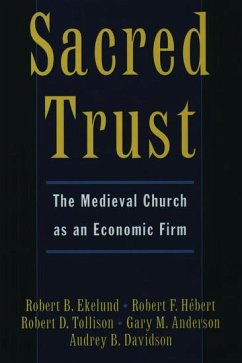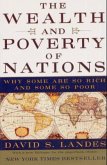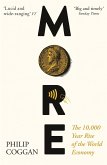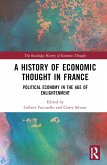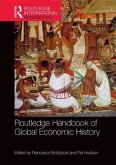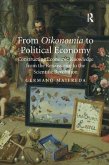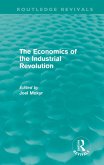In Sacred Trust: The Medieval Church as an Economic Firm, five highly respected economists advance the controversial argument that the story of the Roman Catholic Church in the Middle Ages is in large part a story of supply and demand. Without denying the centrality - or sincerity - of religious motives, the authors employ the tools of modern economics to analyze how the Church's objectives went well beyond the realm of the spiritual. They explore the myriad sources of the Church's wealth, including tithes and land rents, donations and bequests, judicial services and monastic agricultural production. And they present an in-depth look at the ways in which Church principles on marriage, usury, and crusade were revised as necessary to meet - and in many ways to create - the needs of a vast body of consumers. Along the way, the book raises and answers many intriguing questions. The authors explore the reasons behind the great crusades against the Moslems, probing beyond motives of pure idealism to highlight the Church's concern with revenues from tourism and the sale of relics threatened by Moslem encroachment in the holy lands. They examine the Church's involvement in the marriage market, revealing how the clergy filled their coffers by extracting fees for blessing or dissolving marital unions, for hearing marital disputes, and even for granting permission for blood relatives to wed. And they shed light on the concept of purgatory, showing how this "product innovation" developed by the Church in the twelfth century - a form of "deferred payment" - opened the floodgates for a fresh market in post-mortem atonement through payments on behalf of the deceased. Finally, the authors show how thecumulative costs that the faithful were asked to bear eventually priced the Roman Catholic Church out of the market, paving the way for Protestant reformers like Martin Luther.

